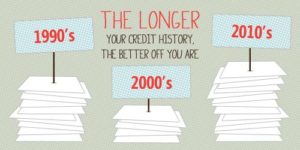 In the last few months I’ve helped several families refinance and consolidate their credit card debt using the equity in their houses. One family was able to save $1,100 per month, another family $1,300 per month, and another family $1,700 per month. That represents a significant amount of any family’s monthly cash flow and that money can now be redirected to improve the financial health of each of those families.
In the last few months I’ve helped several families refinance and consolidate their credit card debt using the equity in their houses. One family was able to save $1,100 per month, another family $1,300 per month, and another family $1,700 per month. That represents a significant amount of any family’s monthly cash flow and that money can now be redirected to improve the financial health of each of those families.
During the transaction each of these clients expressed their intention to close the accounts after they were paid off. They each thought that it was the best thing to do. Some of the reasons they gave for wanting to close their credit accounts are:
- They didn’t want to be tempted to run up the balances again
- They didn’t want a bunch of open accounts on their credit report that they weren’t using
- They didn’t want to have too many open accounts
- They didn’t want to pay the annual fee for accounts that had a fee
- They didn’t want an account with negative activity to continue hurting their credit scores
- They believed their credit scores will go up
These are all excellent reasons to close credit accounts and may very well make these folks feel better about their overall credit history. In fact, just paying off their credit account balances will significantly improve their credit scores because it will lower each family’s credit card utilization rate. However, what they didn’t know was that closing their credit accounts will likely lower their credit scores, potentially offsetting any improvement gained by paying off the accounts. Especially if the accounts they close are older accounts.
 The length of time a person’s credit accounts have been opened represents 15% of the credit score and is another important factor that operates behind the scenes. By that I mean it is affecting the credit scores, but few people know it, and fewer still understand how.
The length of time a person’s credit accounts have been opened represents 15% of the credit score and is another important factor that operates behind the scenes. By that I mean it is affecting the credit scores, but few people know it, and fewer still understand how.
The length of a person’s credit history is a great indicator of a person’s willingness to pay their obligations as agreed. Obviously, the longer the period of time a person has paid their monthly obligations as agreed, the more reliable and creditworthy that person is and the less of a risk that person represents to a creditor. Thus, the longer your credit history, the higher your credit scores, provided your payment history and utilization rate a favorable.
The length of a person’s credit history is calculated using the following information:
- The age of a consumer’s oldest credit account as determined by the opening date
- The age of a consumer’s newest credit account as determined by the opening date
- The average age of all of the consumer’s credit accounts
- How long different types of credit accounts (i.e., mortgages, credit cards, auto loans, etc…) have been established
- How long it’s been since different types of credit accounts have been used (recency of activity)
Closing credit card accounts affects both your utilization rate and the length of your credit history. By closing a credit card account, you take the available credit limit on that card completely out of the aggregate utilization rate calculation. This will result in an immediate increase in your credit card utilization rate and a shortening of your credit history, thereby potentially lowering your credit score.
 The age of the oldest account and the average age of all accounts have the greatest impact with this key criterion. The longer the credit history a person has the greater the number of points they will see in their credit score.
The age of the oldest account and the average age of all accounts have the greatest impact with this key criterion. The longer the credit history a person has the greater the number of points they will see in their credit score.
You may find it surprising to know that closed accounts are also used to determine your credit scores. Even though an account is closed, it contains information on your payment history as well as its current age. It’s best to leave credit accounts open as long as possible to avoid reducing your available credit, and to avoid damaging your utilization rate.
For more information on credit and credit scoring download our FREE report entitled “Credit Scoring and Wealth – The Game of Credit.”
Leave a Comment